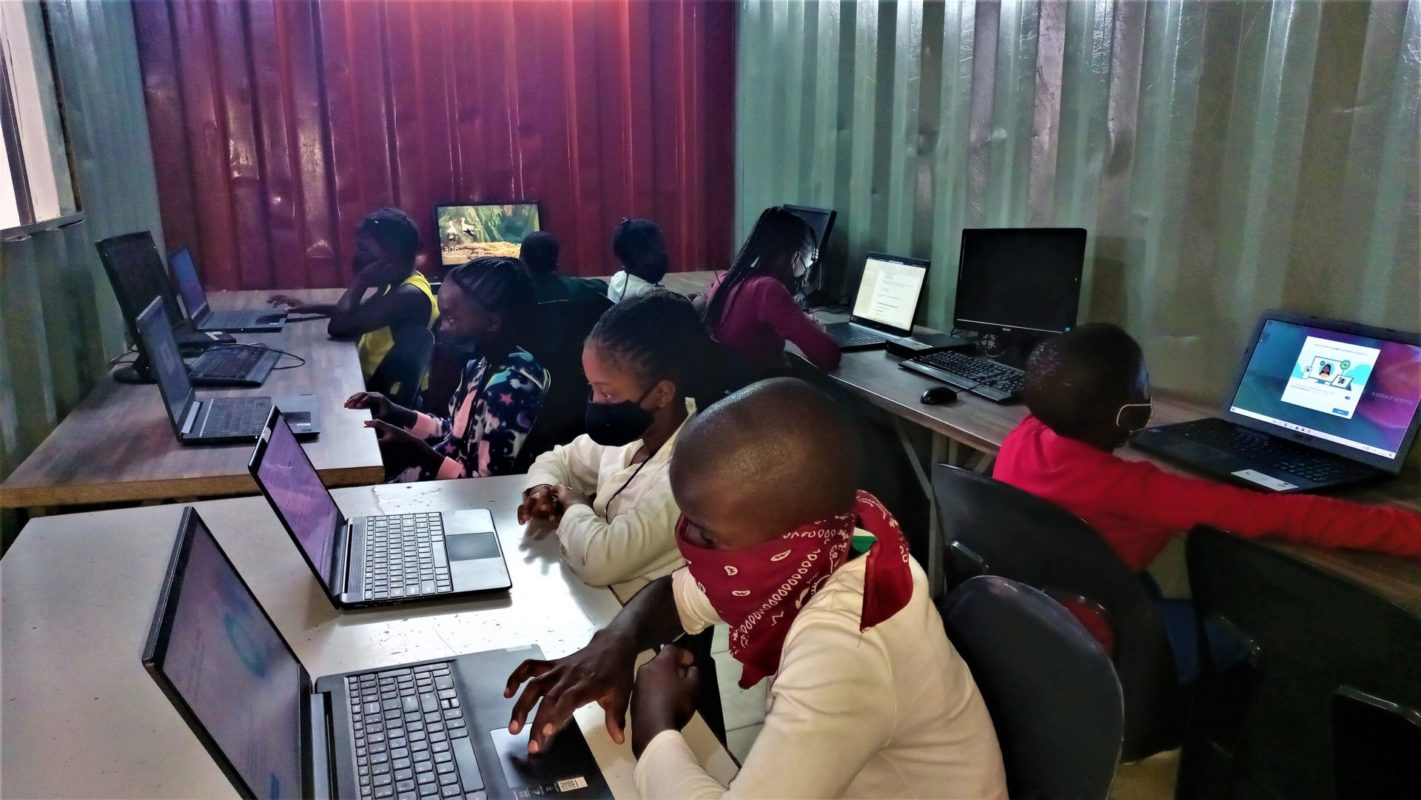PND Centre is a support centre for children, youth and women, based in Kya Sands informal settlement where the youth is faced with poverty, high dropout rates and high unemployment rates. They provide educational support as well as youth development support. PND Centre has a variety of programmes aimed at equipping the youth with digital skills. Judith Phiri, Project Manager tells us more…
What does your organisation do to equip youth with digital or e-learning skills?
We have implemented different services to empower the youth in informal settlements, such as a computer hub, where we provide free internet access and introduction to basic computer skills. The youth can use these facilities to access different online learning resources such as Mindset classes, Siyavula learning resources and other YouTube tutorials free of charge. This programme also works hand-in-hand with the graduates tutoring programme. Some students, however, have never had access to computers and lack digital skills, we equip them with basic computer skills such as introduction to computers, Word, Excel and PowerPoint. These skills enable them to access online learning resources, to improve their marks, to reduce school dropout rate and to enable them to access more opportunities once they complete high school.
We also assist those who have completed high school, with basic computer skills, for them to learn how to develop their own CVs and apply for jobs & other learning opportunities.
Why is it important for youth from under-resourced communities and schools to receive access to digital learning and resources?
We are living in the digital age; all learners need to be equipped with digital skills in order to be competitive in the job market and to seize opportunities that will enable them to break free from poverty.
Digital learning for students in under-resourced communities and schools is crucial as it provides students with easy access to information, it complements traditional learning and affords them the chance to deepen their understanding of the curriculum content and explore other valuable subjects, such as STEM (there is a high demand for STEM careers globally).
Digital learning allows students to have access to educational resources 24/7, it gives opportunity for learning to be personalised and tailored to their understanding. It also allows teachers and tutors to have access to analytics for each student, that can be used to identify which students are falling behind and what they are struggling with, this information can be used for remedial learning and support.
The skills they obtain through digital learning can be carried over into life after high school; they are able to apply those skills in seeking higher skilled jobs or to further their studies. This earns them an opportunity to break inter-generational poverty and increases chances of employability, decreasing youth unemployment in the country.
Besides practical knowledge and access to digital technology, what else do you think South African youth need to thrive?
Work readiness assistance: most employers emphasise on experience when recruiting and selecting employees. Therefore, organisations working with the youth should organise volunteer or training programmes with targeted companies for the youth to gain experience. There are many opportunities out there, however, the youth are not aware or lack support in seizing them.
There are many youths in underserved communities who are lacking access to these opportunities, they finish school and stay at home because they lack support regarding the next step and the different opportunities, available to them. They need more support to be prepared for life after high school such as guidance on careers, finances, job hunting and entrepreneurial skills.
They should also be encouraged to take sport as a career, parents should be urged to support children who are talented or have a keen interest in sports. Formal sporting is a career in its own right, and engaging in sporting activities will occupy them, keep them away engaging in activities that might harm them.
We are living in the digital age; all learners need to be equipped with digital skills in order to be competitive in the job market and to seize opportunities that will enable them to break free from poverty.
